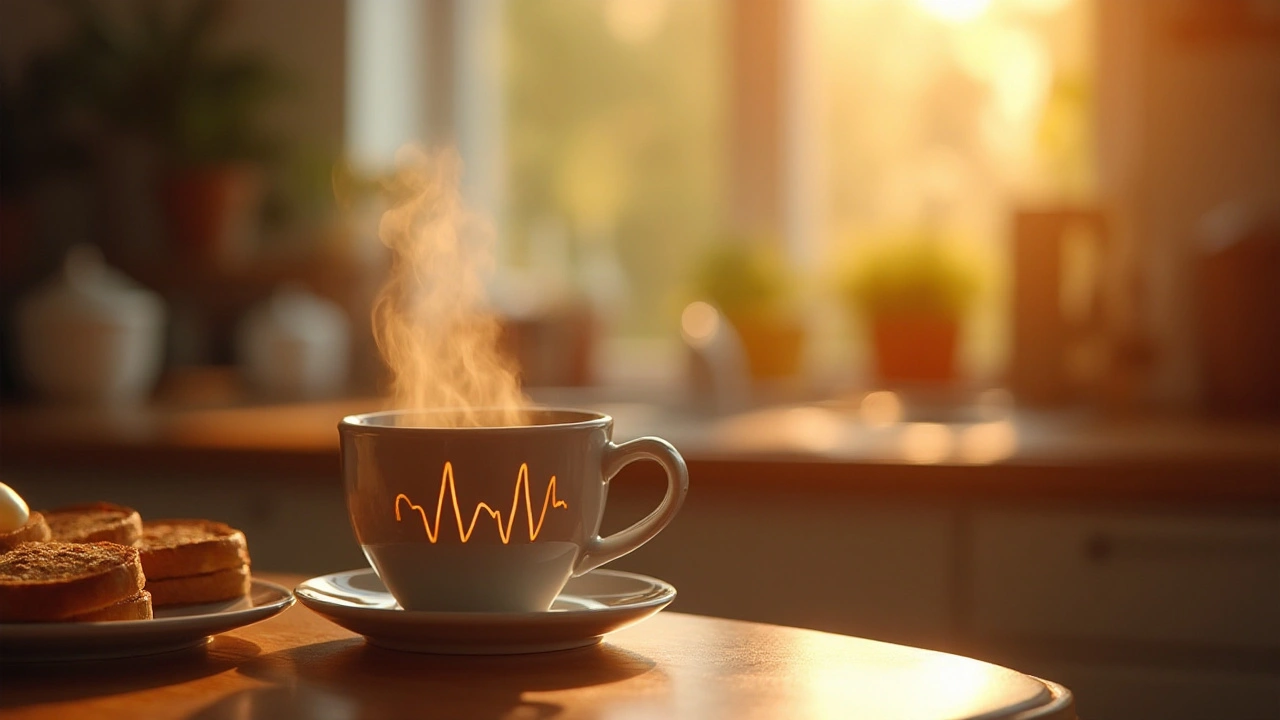Caffeine Impact: What Happens When You Drink Coffee
Coffee and caffeine wake you up fast, but they also change your sleep, mood and heart rate. Knowing how caffeine works helps you use it without paying for it later.
Caffeine is absorbed within 30–60 minutes and reaches a peak in your blood. Its half-life — the time for your body to cut the amount in half — is about five hours for most adults. That means a late afternoon espresso can still be active at bedtime.
How caffeine affects sleep, focus and your heart
Caffeine blocks adenosine, a brain chemical that makes you feel sleepy. That boosts alertness and reaction time for a few hours. Athletes and students often get a short performance lift from 50–200 mg of caffeine.
Too much caffeine raises heart rate and can cause palpitations or jitteriness, especially if you are sensitive. It can also raise blood pressure briefly. If you already take blood pressure or heart medicines, talk to your doctor before upping caffeine.
Because caffeine cuts into deep sleep, people who drink it late report lighter sleep and more awakenings. If you have insomnia or anxiety, even small doses late in the day can matter.
Practical tips to control caffeine without losing benefits
Aim for a daily limit near 200–400 mg if you are a healthy adult. One regular cup of coffee has about 80–120 mg; an energy drink or strong espresso can be much higher. Start low and notice your own response.
If sleep is an issue, stop caffeine 6–8 hours before bedtime. For example, if you go to bed at 11 pm, avoid caffeine after 3–5 pm. Swap an afternoon coffee for water, herbal tea, or a short walk to reset energy.
Cutting back quickly can cause headaches, low energy, and irritability for a few days. Reduce intake gradually over a week by mixing decaf with regular coffee or cutting one cup at a time.
Switching to smaller doses spread through the morning keeps focus without big crashes. Try 50–100 mg in the morning and a light top-up before midday, rather than large amounts all at once.
Pregnant people, teens, and those with certain heart problems should aim for lower limits or avoid caffeine. Also watch hidden caffeine in chocolate, medications, and some supplements.
Finally, use caffeine as a tool, not a crutch. Combine it with sleep hygiene, regular meals, and short naps for steady energy. When you treat caffeine intentionally, it helps more and harms less.
Some people metabolize caffeine faster because of genetics (CYP1A2). Fast metabolizers can drink more without sleep trouble; slow metabolizers feel effects longer and should cut back. Caffeine can interact with certain drugs like some antibiotics and heart medications, so check with your clinician. Expect withdrawal symptoms to peak 24–48 hours after cutting caffeine and to ease within a week. If you want clearer sleep and steadier energy, try a two-week low-caffeine experiment and track your mood and sleep with a simple app.
Small changes matter daily.
This article discusses how alcohol and caffeine consumption can influence heart rhythm, particularly focusing on the occurrences of irregular heartbeat. While some enjoy a morning cup of coffee or an evening glass of wine, these substances can have significant impacts on the cardiovascular system. It's crucial to understand how they can affect heart health, especially for individuals with pre-existing conditions. The piece delves into the science behind these effects, providing useful tips for managing and potentially reducing the risks associated with alcohol and caffeine consumption.

